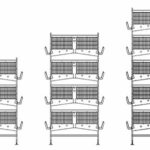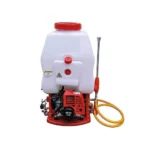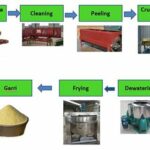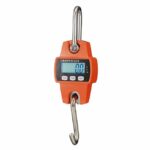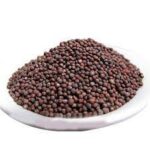Introduction
A. Brief overview of the poultry industry in Nigeria
Poultry farming has emerged as a lucrative and sustainable business venture in Nigeria, offering a steady income stream and contributing significantly to the nation’s food security and economy, providing employment and generating revenue. Choosing the right poultry type, whether broilers or layers, is crucial for the success of any poultry farming venture. This comprehensive guide delves into the characteristics, pros and cons, and profitability of broilers and layers, providing valuable insights for aspiring poultry farmers in Nigeria.
B. Importance of choosing the right poultry type (broilers vs layers)
Choosing the right poultry type for your farming venture is crucial for achieving profitability and sustainability. Broilers and layers are the two main types of poultry raised in Nigeria, each with its own distinct characteristics and market demand. Understanding the differences between broilers and layers is essential for making an informed decision based on your goals, resources, and market conditions.
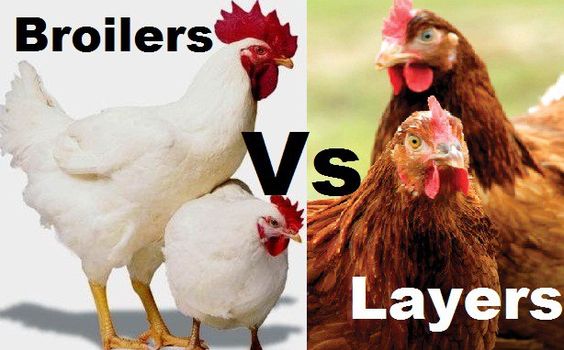
C. Purpose of the guide
This comprehensive guide aims to provide aspiring poultry farmers in Nigeria with a thorough understanding of broilers and layers, enabling them to make informed decisions about which type of poultry is best suited for their needs. It delves into the characteristics, pros and cons, profitability, market trends, and expert insights for both broilers and layers. Additionally, the guide covers essential aspects such as climate considerations, market analysis, government regulations, feeding and nutrition, health management, case studies, financial planning, marketing strategies, and concluding remarks.
II. Understanding Broilers
A. Characteristics of Broilers
Broilers are fast-growing chickens bred specifically for meat production. They are typically raised to a slaughter weight of around 2.5 kilograms within 6 to 8 weeks. Broilers are known for their efficient feed conversion ratio, meaning they gain weight quickly with relatively low feed consumption.
- Growth rate: Broilers exhibit rapid growth, reaching slaughter weight within a short period.
- Feed conversion ratio: Broilers have an excellent feed conversion ratio, efficiently converting feed into meat.
- Market demand for broilers in Nigeria: Broiler meat is highly sought-after in Nigeria, making it a profitable venture.

B. Pros and Cons of Raising Broilers
- Profitability: Broiler farming can be a profitable enterprise due to the high demand for broiler meat.
- Investment and operating costs: The initial investment for broiler farming is relatively low compared to other poultry types. Operating costs, including feed, housing, and medication, are also manageable.
- Market trends and potential challenges: Broiler meat is subject to market fluctuations, so farmers need to stay informed about market trends and implement risk mitigation strategies.
III. Delving into Layers
A. Characteristics of Layers
Layers are chickens primarily raised for egg production. They have a longer lifespan than broilers, typically laying eggs for around two years. The average egg production per layer is around 300 eggs per year.
- Egg production capacity: Layers are prolific egg producers, providing a steady income stream.
- Feed requirements: Layer feed is formulated to support egg production, requiring specific nutritional requirements.
- Market demand for eggs in Nigeria: Eggs are a staple food in Nigeria, with a consistently high demand.

B. Pros and Cons of Raising Layers
- Sustainable income stream: Layer farming provides a sustainable income stream through egg sales.
- Initial investment and ongoing costs: The initial investment for layer farming is higher than for broiler farming due to the longer production cycle. Ongoing costs, including feed, housing, and medication, are also present.
- Market trends and potential challenges: Egg prices can fluctuate due to market conditions and supply-demand dynamics. Farmers need to adapt to market fluctuations to maintain profitability.
IV. Factors to Consider Before Making a Decision
A. Climate and Environmental Considerations
- Climate suitability for broilers and layers: Broilers are more adaptable to various climates, while layers may require temperature-controlled housing in extreme environments.
- Housing requirements: Broilers require less sophisticated housing than layers, as their production cycle is shorter.
B. Market Analysis
- Current demand and future trends: Analyze current market demand and projected trends for both broiler meat and eggs.
- Pricing and profitability projections: Evaluate pricing trends and potential profit margins for both broilers and layers.
C. Government Regulations and Support
- Regulations affecting poultry farming in Nigeria: Familiarize yourself with government regulations and licensing requirements for poultry farming.
- Available support programs and subsidies: Explore government support programs and subsidies available for poultry farmers.
V. Feeding and Nutrition
A. Broilers
- Optimal feed composition: Broilers require a balanced diet that provides adequate energy, protein, vitamins, and minerals to support their rapid growth. A typical broiler feed consists of maize, soybean meal, fishmeal, bone meal, and premix.
Buy Quality Broilers and Noilers on Afrimash
B. Layers
- Growth-promoting additives: Growth-promoting additives, such as coccidiostats and antibiotics, can be incorporated into broiler feed to improve feed utilization, prevent diseases, and promote growth. However, the use of these additives should be carefully monitored and regulated to avoid potential health risks.

- Nutritional requirements for egg production: Egg production is a demanding process, and layers require a diet rich in calcium, protein, and vitamin D to support shell formation and overall health. A balanced layer feed typically includes maize, soybean meal, limestone, and premix.
- Importance of calcium and other supplements: Calcium is crucial for eggshell formation, and layers require approximately 2.5 grams of calcium per day. Calcium supplements, such as oyster shells, can be provided to ensure adequate calcium intake. Other essential supplements include vitamin D3, which aids in calcium absorption, and iodine, which is vital for thyroid function and overall health.

VI. Health Management
A. Common diseases in broilers and layers
Broilers and layers are susceptible to various diseases that can affect their growth, productivity, and overall well-being. Some common diseases include:
- Newcastle disease: A highly contagious viral disease that causes respiratory distress, diarrhea, and neurological signs.
- Infectious bronchitis: A viral disease that causes respiratory symptoms, reduced egg production, and poor shell quality.
- Coccidiosis: A parasitic disease that affects the intestines and can lead to weight loss, bloody diarrhea, and mortality.
B. Vaccination schedules
Vaccination is an essential preventive measure in poultry health management. Regular vaccination schedules should be implemented to protect broilers and layers from common diseases. The specific vaccines and vaccination schedules may vary depending on the region and the prevalence of certain diseases.
C. Biosecurity measures
Biosecurity practices are crucial for preventing the introduction and spread of diseases in poultry flocks. These measures include:
- Restricted access to poultry houses: Limit access to poultry houses to authorized personnel and implement strict hygiene protocols.
- Proper sanitation: Regularly clean and disinfect poultry houses, equipment, and utensils to eliminate potential pathogens.
- Quarantine of new birds: Isolate new birds for a period of observation before introducing them to the main flock.
- Prompt diagnosis and treatment of sick birds: Early detection and treatment of sick birds can prevent the spread of diseases within the flock.
VII. Case Studies
A. Success stories of poultry farmers in Nigeria (broilers)
Numerous success stories of broiler farmers in Nigeria demonstrate the potential profitability of this venture. One notable example is Mr. John Adebayo, a broiler farmer from Oyo State, who has successfully raised over 10,000 broilers per cycle, generating significant income.
B. Success stories of poultry farmers in Nigeria (layers)
Mrs. Fatima Adamu, a layer farmer from Kaduna State, exemplifies the success achievable in layer production. Her innovative approach, which includes utilizing improved breeds and adopting advanced feeding and management practices, has resulted in consistent egg production and substantial profits.
VIII. Financial Planning and Budgeting
A. Initial investment for broilers and layers
The initial investment for broiler or layer production depends on various factors, including the scale of operation, housing facilities, and equipment. However, a typical initial investment for a small-scale broiler or layer farm may range from ₦50,000 to ₦200,000.
B. Operating costs and potential returns
Operating costs for poultry farming include feed, chicks, labor, medication, and utilities. Potential returns depend on factors such as market prices, production efficiency, and disease management. Broiler production typically offers a shorter production cycle and quicker returns, while layer production provides a steady income stream from egg sales.
C. Budgeting tips for efficient poultry farming
Effective budgeting is crucial for the financial success of poultry farming. Here are some budgeting tips:
- Accurately estimate all expenses: Create a detailed cost plan, considering all potential expenses, including feed, chicks, labor, medication, and utilities.
- Track income and expenses regularly: Maintain accurate records of income and expenses to monitor financial performance

